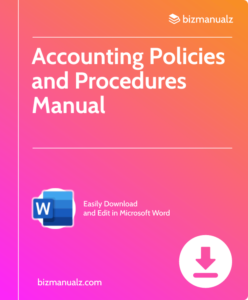The Depreciation Operating Expense

Depreciation is renowned in accounting. It’s key to understand if depreciation is an operating expense or not. Exploring this topic reveals knowledge of businesses’ financial aspects. The depreciation operating expense.
The Operating Expense Depreciation
Depreciation is a gradual reduction in the value of an asset. It may look like an expense, but it’s a non-cash expense. Meaning, it’s seen in financial statements, but no cash is used. The reason for this is its nature. Unlike wages, utilities, or raw materials, which influence day-to-day operations, depreciation reflects the wear and tear of a long-term asset.
So, what does this mean for businesses? By recognizing depreciation as a non-operating expense, companies can separate operational costs from capital investments. This helps investors and analysts judge a company’s profitability through operations, not non-cash expenses.
- Companies should follow accounting principles for calculating depreciation. This adds consistency to different periods and entities.
- Businesses should review their asset base to adjust depreciation rates.
- Disclosing policies related to depreciation promotes transparency.
- Businesses must evaluate impairment indicators for write-downs.
By understanding that depreciation is a method to allocate costs over time, businesses can provide reliable financial information. Following these suggestions ensures consistency, transparency, and reliability in financial reporting. This helps stakeholders make informed decisions, resulting in organization growth and success.
Definition of Depreciation
Depreciation expense in accounting is when an asset’s value decreases over time. It’s a must-know concept for businesses to correctly allocate costs and assess their financial health. By recognizing the decrease in value, tracking and reporting assets becomes easier.
When a company buys things like buildings, equipment, or cars, they don’t pay the whole cost up front. They spread it out over the asset’s useful life, because assets can become worn out or outdated. Depreciation expense is usually recorded yearly with methods like straight-line depreciation or declining balance method.
The special thing about depreciation as an operating cost is that it affects a company’s income statement but not their actual cash flow.
Businesses can do a few things to optimize depreciation expenses:
- Pick the right method for calculating depreciation to stay accurate and follow accounting standards.
- Keep records of changes in market conditions and technology to reassess asset values regularly.
Also, managing asset maintenance properly extends their life and reduces the need to replace them often. Companies can reduce asset deterioration and the resulting increase in depreciation costs by implementing preventive maintenance schedules and appropriate repair practices.
By knowing depreciation as an operating expense and using it properly, businesses can make wise financial decisions based on realistic asset values. This ensures an accurate reflection of a company’s real operational costs and financial performance and helps them plan for future capital investments carefully.
Explanation of operating expenses
Operating expenses are an essential part of a company’s financial statements. They are the costs of running a business day-to-day. These expenses affect profitability and efficiency. Common ones are wages, rent, utilities, marketing, and other things needed for the business.
Not all costs are operating expenses though. Depreciation is not one. It is a non-cash expense, which shows the loss in value of long-term assets over time. Things like buildings, machinery, or vehicles.
To explain this better, consider a manufacturing company that bought machinery for $100,000. It has a useful life of ten years. Rather than deduct the total cost from revenue in one year, the company spreads the cost out over ten years with depreciation expense.
Difference between operating and non-operating expenses
Distinguishing between operating and non-operating expenses is a must to comprehend the financial aspects of a business. Operating expenses are those related to a company’s everyday activities, whereas non-operating expenses are not. To get a better grasp, let’s have a look at this table:
| Operating Expenses | Non-Operating Expenses |
|---|---|
| Wages and Salaries | Interest Expense |
| Raw Materials | Depreciation |
| Rent | Income Taxes |
As you can see, operating expenses are necessary costs for running the business, such as wages, salaries, raw materials, and rent. On the other hand, non-operating expenses include interest expense and income taxes that don’t relate to the primary operations.
Depreciation is usually counted as a non-operating expense due to assets’ wear and tear over time. However, in certain industries where heavy machinery is a vital part of the day-to-day operations, depreciation may be considered an operating expense.
A good example is a small bakery utilizing old ovens that keep breaking down. Repairs become more frequent and costly, so the owners invest in new industrial ovens. Purchasing these ovens is an operating expense, but their depreciation will contribute to operational costs.
To sum up, understanding the difference between operating and non-operating expenses helps businesses allocate resources for growth and make informed decisions that drive profitability and success.
What Does GAAP Say About Depreciation as an Operating Expense?
Under Generally Accepted Accounting Principles (GAAP), the treatment of depreciation as an operating expense depends on the nature of the asset being depreciated and the financial statement being prepared (typically, the income statement or the statement of cash flows). GAAP provides guidelines for how businesses should record and report depreciation expenses:
Depreciation in the Income Statement
In the income statement, GAAP generally requires that depreciation expenses be recorded as part of operating expenses. This is because depreciation represents the allocation of the cost of a long-term tangible asset (such as buildings, vehicles, machinery) over its estimated useful life. By including depreciation as an operating expense, a company reflects the ongoing cost of using and maintaining its assets in the normal course of business.
The inclusion of depreciation in operating expenses is consistent with the matching principle, which states that expenses should be recognized in the same period as the revenues they help generate. Since depreciation reflects the cost of using assets to generate revenue, it is considered an operating expense.
Depreciation in the Statement of Cash Flows
When preparing the statement of cash flows, GAAP treats depreciation differently. Depreciation is added back to the net income in the operating activities section of the cash flow statement. This is because depreciation is a non-cash expense—it represents the allocation of an asset’s cost over time but does not involve an actual cash outflow.
By adding back depreciation to net income, the cash flow statement aims to show the cash generated or used by the company’s operations without the non-cash impact of depreciation. This adjustment is made to provide a clearer picture of the company’s cash flow from its core operating activities.
In summary, GAAP requires that depreciation be recorded as an operating expense on the income statement because it represents the cost of using long-term tangible assets in the normal course of business. However, when preparing the statement of cash flows, depreciation is added back to net income to reflect the non-cash nature of this expense and provide a more accurate representation of the company’s cash flow from operating activities.
Is Depreciation an Operating Expense?
Depreciation, in accounting terms, is the gradual reduction of value of a business’ fixed assets. It is an operating expense that reduces net income and displays the use of the asset, or if it’s out-of-date. Here are five facts on depreciation as an operating expense:
- Depreciation permits businesses to spread the cost of an asset over its useful life.
- It is an operating expense since it is linked straight to the production or provision of services and goods.
- Accounting rules need companies to depreciate tangible assets such as machines, buildings, and cars.
- Different depreciation methods exist, like units of production, straight-line, and declining balance.
- The aim of recognizing depreciation as an operating expense is to match expenses with revenue in a given time.
Also, it’s important to remember that depreciation affects a business’ financial statements, but does not require cash outlay. This is what sets it apart from other operating expenses like salaries or rent. Instead, it stands for the unavoidable decrease of an asset’s value due to time passing or technology advancements.
Pro Tip: Knowing depreciation as an operating expense is a must for evaluating a company’s profitability and financial stability. By accurately recording and estimating depreciation expenses, businesses can make reliable financial reports that help in decision-making.
Depreciation is a non-cash expense
Depreciation is an expense, but not a cash outflow. It reflects reduced value of assets over time. For example, a business buys a delivery truck for $50,000. Over time, it decreases in value due to wear and tear or tech advancements. There is no need to pay for it though.
Depreciation affects cash outflow as a non-cash expense, but it doesn’t require cash outflow immediately. This idea may seem complicated, but it’s important in accounting to figure out the real cost of using an asset during its lifetime. Financial statements must show depreciation as an expense so the decline in value of your assets is represented accurately.
If depreciation wasn’t accounted for, financial records would not reflect reduced value of assets and might show wrong profits. Investors and stakeholders rely on precise financial data to evaluate a company’s performance and make decisions.
Now, let’s investigate how this concept can benefit your business:
- Financial reports with depreciation will be more transparent, providing a clearer view of assets’ real worth.
- Accounting for depreciation helps predict future capital expenses accurately.
Moreover, understanding depreciation helps you budget funds for asset replacements or upgrades without affecting cash flow. By setting aside funds based on expected depreciation expenses, you can replace assets when necessary.
Remember: including depreciation in financial statements does not influence cash flow directly, but it does impact the overall financial health of your business. So make sure to consider and comprehend this non-cash expense when assessing your company’s performance.
Impact of depreciation on financial statements
Comprehending the effect of depreciation on financial statements is essential. Depreciation is the assigning of an asset’s cost over its useful life, which reflects its gradual decrease in value.
Let’s have a look at a table that explains its effect on different financial statements:
| Financial Statement | Implications |
|---|---|
| Income Statement | Reduction of net income through depreciation expense. |
| Balance Sheet | Lowering of fixed assets plus accumulating as accumulated depreciation. |
| Cash Flow Statement | Not directly affecting cash flow but influencing taxes and investment decisions. |
The income statement shows depreciation as an operating expense, bringing down net income. This reduces profitability plus taxes paid by a company. On the balance sheet, depreciation appears as accumulated depreciation under fixed assets. It demonstrates the decline in value over time and impacts the financial health of a company.
Depreciation does not affect cash flow directly, but affects decisions regarding taxes and investments. It gives an insight into the actual wear and tear or obsolescence of assets, helping businesses make better decisions about replacements or upgrades.
To make sound decisions and guarantee financial stability, businesses must analyze their financial statements with respect to the impact of depreciation. Neglecting or misinterpreting this can lead to ill-informed decisions that damage their financial standing.
By carefully considering the impact of depreciation on financial statements, businesses can manage their assets effectively and make prudent decisions that bring success in today’s competitive business landscape.
Depreciation Operating Expense
The depreciation operating expense is about the gradual wear and tear of assets over time. By including it in their financials, businesses can track the decreasing value of their assets. Plus, depreciation also plays a role in decision-making. Knowing how quickly assets depreciate helps companies know when to replace or upgrade them. This keeps operations efficient and cost-effective.
Here’s a story: There was a small manufacturing company that didn’t consider depreciation when pricing their products. They priced them lower than competitors, but didn’t factor in asset deterioration over time. In the end, they couldn’t afford equipment replacements and faced major losses. This shows how important it is to factor in depreciation for a healthy financial outlook and informed business decisions.
Frequently Asked Questions
 Q: Is depreciation an operating expense?
Q: Is depreciation an operating expense?
A: Yes, depreciation is considered an operating expense in accounting.
Q: What is the definition of depreciation?
A: Depreciation refers to the systematic allocation of the cost of a tangible asset over its useful life.
Q: How does depreciation work as an operating expense?
A: When calculating operating expenses, depreciation is included to account for the decrease in value of an asset over time.
Q: Can you provide an example of depreciation as an operating expense?
A: Sure! Let’s say a company purchases a piece of machinery for $10,000 with an estimated useful life of 5 years. Each year, the company would record $2,000 ($10,000 divided by 5) as depreciation expense, which is treated as an operating expense.
Q: Why is it important to classify depreciation as an operating expense?
A: Classifying depreciation as an operating expense helps companies accurately calculate their operating income and determine the financial health of their operations.
Q: Are there any exceptions where depreciation is not considered an operating expense?
A: Yes, there are certain instances where depreciation may not be classified as an operating expense, such as when it is associated with non-operating assets or when it is capitalized as part of a project’s costs.
















Leave a Reply